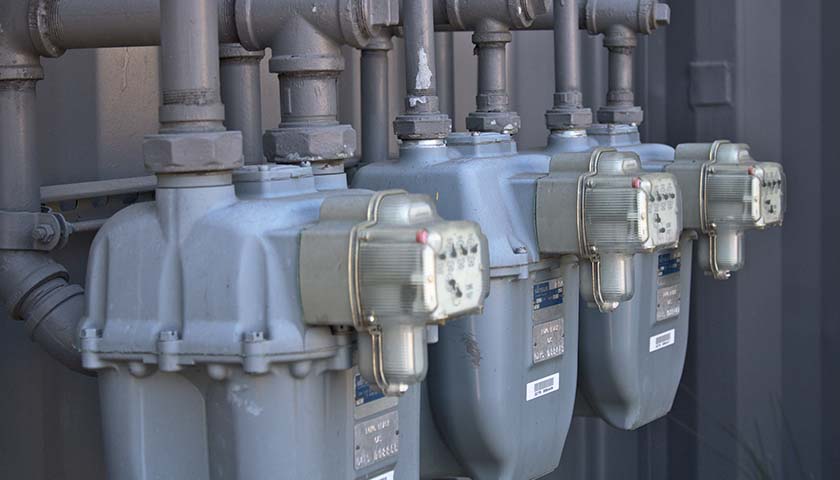by Mary Stroka
Black Hills Energy’s base rate for natural gas will increase Jan. 1, the Iowa Utilities Board ruled this week.
Non-gas costs on residential customers’ bills will rise from $0.13625 per Therm to $0.13905 per Therm. The typical monthly increase in base rates for residential customers will be $1.45, the IUB said in a news release Dec. 28.
Black Hills Energy said Nov. 9 news that its settlement with the Office of Consumer Advocate resulted in a $0.20 increase in the average residential monthly bill, which is its first base rate increase in Iowa in more than 10 years. The company has invested $250 million in infrastructure in Iowa since its last rate increase, the release said.
IUB Communications Specialist Melissa Myers told The Center Square in an emailed statement Wednesday that prior to the rate increase, Black Hills grain dryer customers were charged $600 monthly, $1,170 monthly in the interim (while the rate case was under review) and will become $900 monthly in the new year. The large-volume class rates were $200 monthly before the rate case, $390 in the interim and will become $300 monthly. Interim rates, which were effective June 11, are allowable under Iowa Code 476.6(9), Myers said.
“These investments include replacing, upgrading and maintaining more than 2,800 miles of natural gas pipelines and 164,000 system service lines in the state – critical infrastructure required to ensure the safe and reliable delivery of natural gas to customers’ homes and businesses and support the growth needs of local communities,” the release said.
The IUB’s final decision order approved the new rates, the settlement and the revised compliance tariff Black Hills filed Nov. 19.
Black Hills applied June 1 to increase its annual revenues $10.5 million, for a total revenue requirement of $77.0 million. The Iowa Department of Justice’s Office of Consumer Advocate recommended an increase of $2.94 million, for a total revenue requirement of $69.3 million, instead. Black Hills returned with a $9.47 million rate increase proposal. They both agreed to an annual increase of $5.9 million, a total annual Iowa natural gas revenue requirement of $72.2 million. The amount will be recovered through a three-year rider.
“Today’s IUB order found the settlement to be reasonable in light of the whole record, consistent with law, and in the public interest,” the Dec. 28 release said.
The board approved a 9.6% return on equity, which is what it approved for Interstate Power and Light Company (a subsidiary of Alliant Energy) and Iowa American Water Company, it said in the final decision order. Black Hills had proposed a 10.15% return on equity, and OCA responded with a 9.2% return on equity.
The revenue increase includes paying for Black Hills’ $16,128 of corporate aircraft expenses, $134,269 Iowa-allocated operating expenses for executive vehicles, $55,098 for gifts, flowers, parties, employee events and picnics, and $316,512 for operating expenses stemming from insurance premiums’ increases.
Black Hills Energy said in a Nov. 22 news release that Iowa residential customers should anticipate a roughly 60% increase in cost of natural gas compared with last winter. The release said the cost estimates were based on typical winter weather, market conditions and natural gas price forecasts.
“This increase accounts for the natural gas price, not the entire bill,” the release said. “Actual monthly costs will depend on customer usage. The cost of natural gas is a pass-through cost – meaning Black Hills Energy does not make money on natural gas, even when prices increase.”
Iowa customer bills will continue to include a charge related to February’s extreme cold weather event, as ordered by the Iowa Utilities Board, the Nov. 22 release said.
The company’s release said customers who qualify for the Low-Income Home Energy Assistance Program (LIHEAP) or Weatherization Assistance Program are protected from the annual shutoff of natural gas and electric service from November 1 to April 1. Iowans struggling to afford monthly bills can ask Black Hills Energy to connect them with a local energy assistance partner agency or consider the Budget Billing payment plan option, which averages out usage costs over 12 months. The company provides tips for energy conservation and efficiency here.
The company has about 160,000 customers in Iowa, the IUB’s release said.
– – –
Mary Stroka is a contributor to The Center Square.








